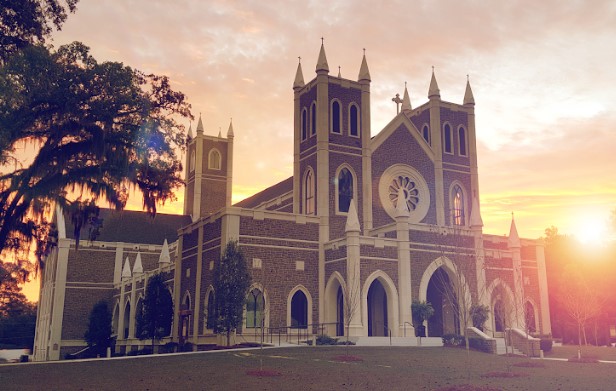By Michael W. Petty, St. Peter’s Anglican Cathedral
By all measures, American culture is becoming increasingly secular. According to the Pew Research Center’s authoritative Religious Landscape Survey, 22.8% of Americans now identify themselves as having no religion at all (they are often designated as “nones”).
Many observers of American Christianity now say that we now live in a post-Christian culture. The theologian Dennis Okholm speaks for many when he observes that “the Christian paradigm no longer serves as the prevailing religious or moral view in the United States, and it probably never will again.”
The question for churches is that of how to respond to this situation. The answer to this question is complex, and I want to focus on one aspect of it. I think that churches need to confess and lament the fact that we have generally done a poor job in the area of formation or discipleship. I think that we need to make this a priority and instead of getting nervous or worried about our secular culture, we should work to create ways of nurturing robust and fruitful discipleship within the churches.
The first step in this direction is becoming clear on what we might call “pathways to discipleship”. What kinds of formation lead to a life of fruitful discipleship? I would suggest that there are four basic pathways:
- Formation in prayer and worship: The Christian life can only be sustained by an intentional and disciplined life of prayer and worship because this cultivates an ever-deepening relationship with God.
- Formation through Scripture and Doctrine: To reach maturity, Christians needs to be grounded in Scripture and Christian Doctrine so they can navigate their way through our culture’s conflicting claims.
- Formation in the stewardship of spiritual gifts and financial resources: We need to cultivate the practice of generosity within the church by helping people to see that both their spiritual gifts and their financial resources are gifts from God which are to be used for God’s purposes.
- Formation in being public witnesses for Christ: Christians need to be empowered to be witnesses at work, at school and in the community.
The life of every Christian community should be ordered in such a way that all of us are set on these four pathways.


From what I have witnessed over the last decade, church attendance has dropped because of the actions of so-called Christians living a dual existence. On Sunday, these “Christians” dress up, go to a church for an hour, drop a few bucks in the offering plate, then spend the rest of the day/week pursuing the pleasures of the world.
What kind of example are they to the non-believers that watch them very closely to see any contradiction to their “claimed” beliefs? They see no difference in the lives of those who claim to live for The Lord, from those who live for the world. We must make an example of our lives by living as the Bible teaches, otherwise, we are no different, and we give non-believers no reason to say, “I want what he/she has, the comfort of a Lord and Savior in my life, too.”
Well said, Fr. Michael……..you are a valuable treasure to our cathedral